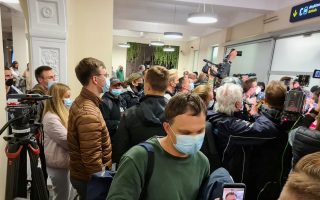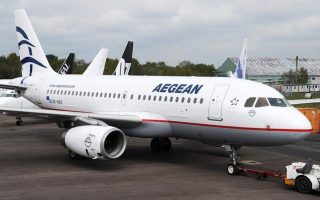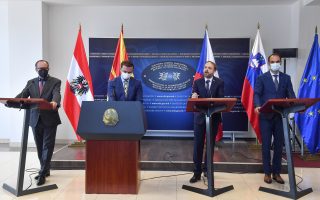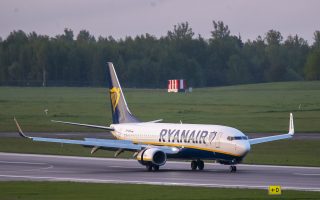Belarus faces EU sanctions over ‘state piracy,’ airlines to shun it
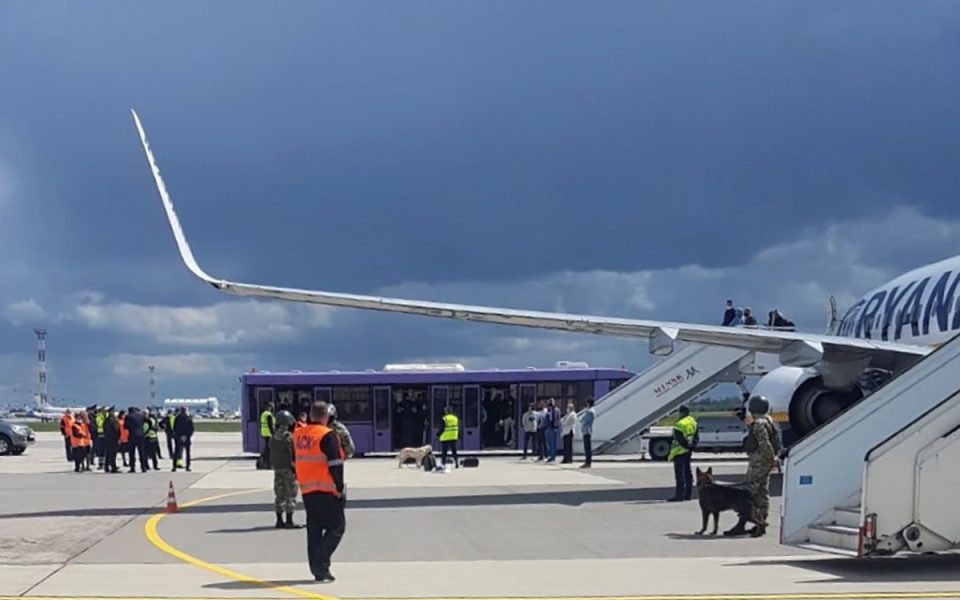
Several airlines said on Monday they would avoid Belarusian airspace after Belarus scrambled a warplane to intercept a Ryanair jetliner and arrest a dissident journalist in an act denounced by Western powers as “state piracy”.
European Union leaders meeting on Monday evening were set to ban Belarussian airlines from their bloc’s airspace and call on EU-based carriers to avoid flying over the former Soviet republic, according to a draft statement seen by Reuters.
The leaders of the 27 member states will also consider widening the list of Belarussian individuals they already sanction and call on the International Civil Aviation Organization (ICAO) to urgently investigate Sunday’s incident, when Belarus forced a Ryanair plane to land.
“The reaction should be swift and be severe,” Belgian Prime Minister Alexander de Croo told journalists ahead of the EU summit that began at 1700 GMT.
Irish Foreign Minister Simon Coveney, using language that was echoed by a number of other EU countries, said: “This was effectively aviation piracy, state sponsored.”
A spokesman for UN Secretary-General Antonio Guterres said he was “deeply concerned” by the incident and called for a full investigation.
The three Baltic states said Belarusian airspace should be declared “unsafe” and – as regional tensions mounted – Belarus and Latvia said they were expelling each other’s ambassadors.
Some airlines and countries did not wait for guidance on how to respond to the flight from Greece to Lithuania being diverted as it flew through Belarusian air space.
Britain said it was issuing a notice to instruct British airlines to cease flights over Belarus and that it would suspend the air permit for Belarus’s national carrier Belavia with immediate effect.
Latvian airline airBaltic and Scandinavian airline SAS said they would stop using Belarusian airspace, and Cyprus-registered Avia Solutions said its Lithuania-based airlines would follow suit.
Lithuania’s transport minister, Marius Skuodis, said Poland’s LOT and Hungarian airline Wizzair would also not use Belarusian airspace and said all flights to and from Lithuanian airports must from midnight GMT avoid Belarusian airspace.
Crackdown on dissent
Countries also called for the release of 26-year-old Roman Protasevich, who was detained when the plane was forced to land in Minsk, the Belarusian capital.
His social media feed from exile has been one of the last remaining independent outlets for news about Belarus since a mass crackdown on dissent last year. Sophia Sapega, a 23-year-old student travelling with him, was also detained.
NEXTA, a news service where Protasevich worked before setting up his own widely followed blog, ran an interview with his mother, who said that as soon as she heard reports of a bomb scare on a flight, she knew it was a plot to capture him.
“I just want to say that my son is simply a hero, simply a hero,” Natalia Protasevich said, weeping. “I truly hope that the international community will wake up for him.”
Belarus says it acted in response to a bomb threat on the flight, which turned out to be a false alarm. It said on Monday its ground controllers had given guidance to the flight but had not ordered it to land. State media said the intervention was ordered personally by President Alexander Lukashenko.
Ryanair boss Michael O’Leary, who referred to the incident as a state-sponsored hijacking, said he believed security agents had been on the flight.
Lithuanian authorities said five passengers never arrived, suggesting three others besides detainees Protasevich and Sapega had disembarked in Minsk.
Russia, which has provided security, diplomatic and financial backing to Lukashenko, accused the West of hypocrisy.
Given the security ties between Minsk and Moscow, some European politicians openly speculated whether Russia may have played a role, which would escalate an incident involving a small European pariah state into one involving a superpower.
New sanctions
EU summit chairman Charles Michel said the incident was “an international scandal”, and the statement drafted for the meeting said new sanctions would be imposed as soon as possible.
EU countries could ban Belavia from European airports and was considering other unspecified measures regarding ground transport links, an EU official said.
Still, the options for Western retaliation appear limited.
The Montreal-based ICAO has no regulatory power, and the EU has no authority over flights taking off and landing in Belarus or flying over its airspace, apart from direct flights that originate or land in Europe.
The EU and the United States imposed several rounds of financial sanctions against Minsk last year, which had no effect on the behaviour of Lukashenko, who withstood mass demonstrations against his rule after a disputed election.
Lukashenko denies election fraud. Since the disputed vote, authorities rounded up thousands of his opponents, with all major opposition figures now in jail or exile.
Belarus lies on the flight path of routes within Europe and between Europe and Asia.
Skirting Belarus would slow flights down and cost airlines money, and apart from the few that announced action it was not clear whether others would do so unless required.
[Reuters]

